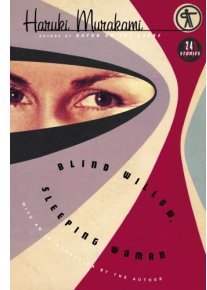Talking to my mom on the phone yesterday, the subject of the weather came up. The temperature in
Here in
“It’s creepy,” my mom said of the warm spell.
I agreed. Pause.
This month’s issue of Wired Magazine features a short article with the headline, “How the Next Victim of Climate Change Will Be Our Minds,” and it tells the story of Glenn Albrecht, an Australian philosopher who has created a new word.
The word, solastalgia, is an amalgam of the latin words solacium (comfort) and algia (pain), “which together aptly conjure the word nostalgia,” notes the author of the story.
Albrecht created the new word to describe the reaction of his fellow Aussies to the effects of climate change.
In interviews Albrecht conducted over the past few years, scores of Australians described their deep, wrenching sense of loss as they watch the landscape around them change. Familiar plants don’t grow any more. Gardens won’t take. Birds are gone. “They no longer feel like they know the place they’ve lived for decades,” [Albrecht] says.
The current and potential economic and environmental effects of climate change are forefront in people’s minds. But what about the mental effects? Albrecht’s observations are a wake-up call: there will be a mental toll to climate change. “In the modern, industrialized West, many of us have forgotten how deeply we rely on the stability of nature for our psychic well-being,” says Albrecht.
Thinking about my conversation with my mom, with this new word in my brain, I guess there was a sense of loss in our exchange. It wasn’t creepy that
Writer Clive Thompson closes the article with this harrowing thought: “In a world that’s quickly heating up and drying up, you can’t go home again — even if you never leave.”
 I’m reading a book of short stories by a Japanese novelist named Haruki Murakami. It’s called Blind Willow, Sleeping Woman. I’ve read most of Murakami’s books and loved every one (Norwegian Wood would accompany me to a desert island) and so far this compilation of 24 stories is no exception.
I’m reading a book of short stories by a Japanese novelist named Haruki Murakami. It’s called Blind Willow, Sleeping Woman. I’ve read most of Murakami’s books and loved every one (Norwegian Wood would accompany me to a desert island) and so far this compilation of 24 stories is no exception.